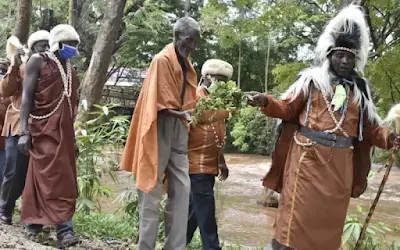The Agikuyu, a Bantu community deeply rooted in agriculture, holds a unique matrilineal structure and a rich cultural heritage. This article delves in the socio-cultural and historical setting that defines this community and how curses come into play.
Clans and Communal Worldview
The Agikuyu are organized into nine clans. Central to their communal-relational worldview are two leadership groups, Mariikameeri ma wathani, represented by Mwangi and Maina. These clans and age groups form the backbone of the Agikuyu social structure, with Mwene Nyaga being the revered deity they worship.
Social Structure and Organization
The Agikuyu social fabric is intricately woven, comprising families, homesteads, and villages. The nine Gikuyu clans give rise to nyumbas (kinship groups), forming larger Ituuras (small villages).
These structures, strengthened by age groups (mariika), play a crucial role in maintaining familial cohesiveness.
Riika System and Curses
The Riika system, developed by the Agikuyu, serves as a vehicle for rites of passage, control, and a source of labor for communal works.
Upholding Riika ideals is paramount, as deviating through immoral behavior or hostility invites powerful curses. Clans and Riika act as custodians of morality, cultural values, and religion.
Agikuyu Traditional Religion & Curses
The Agikuyu's monolithic view of a supreme being, the creator of the cosmos, shapes their religious beliefs.
Various curses, particularly those associated with women and environmental actions, are deeply ingrained in their culture.
In conclusion, the Agikuyu's socio-cultural fabric and traditional beliefs are deeply intertwined, shaping their values, relationships, and responses to the mystical realm of curses.
Editor's Note: 254 NewsDay acknowledges the below listed scholars & institutions whose IJISTR article this blog post is based.
John Laurence K. Waweru, Rev. Prof. Lucy R. Kimaro, and Rev. Dr. James Wambugu, Religious Studies, Catholic University of Eastern Africa, Nairobi, Kenya.

